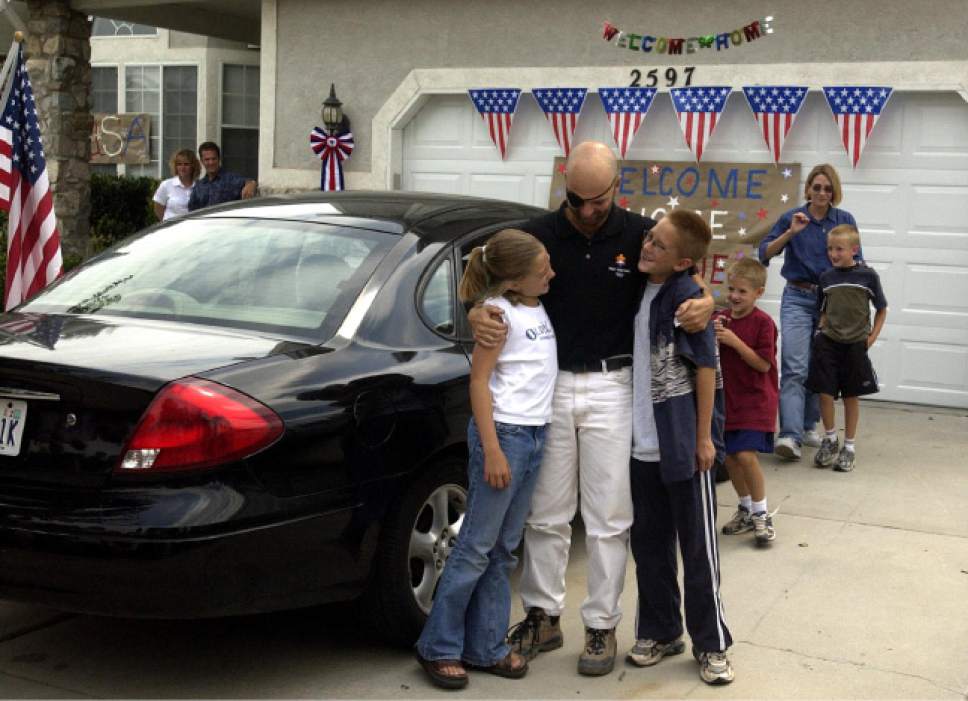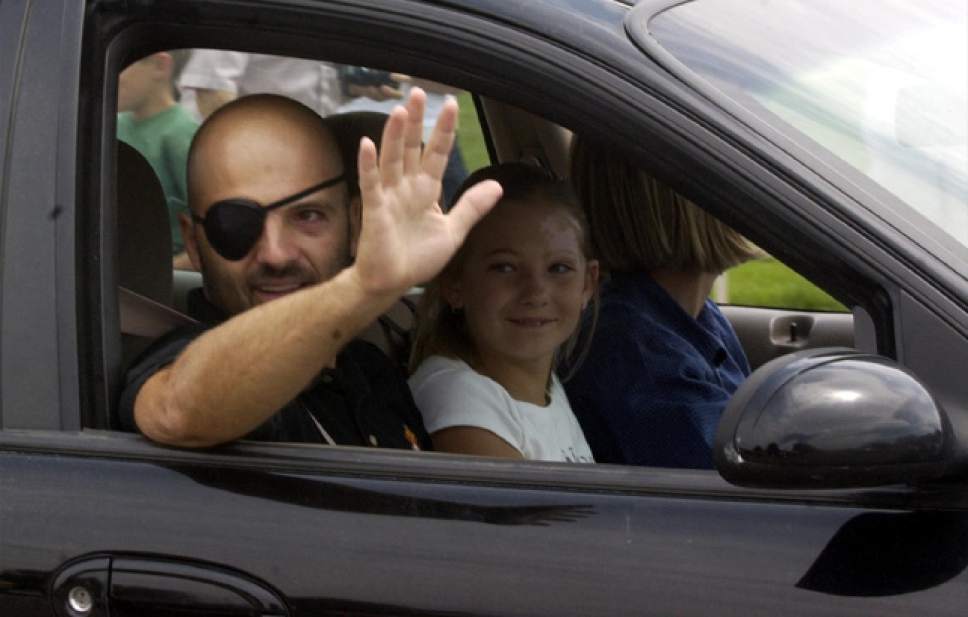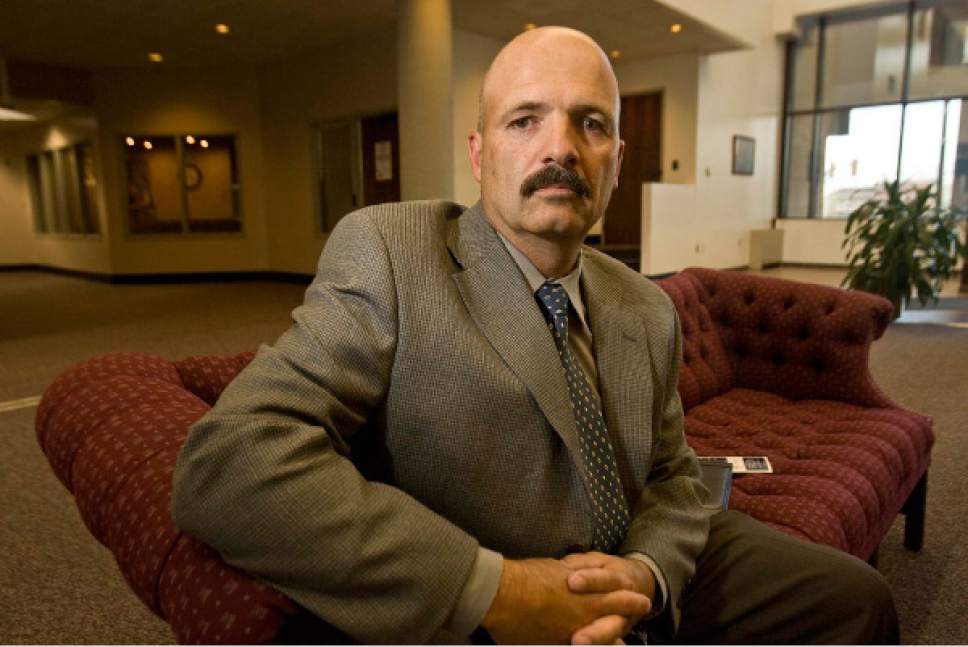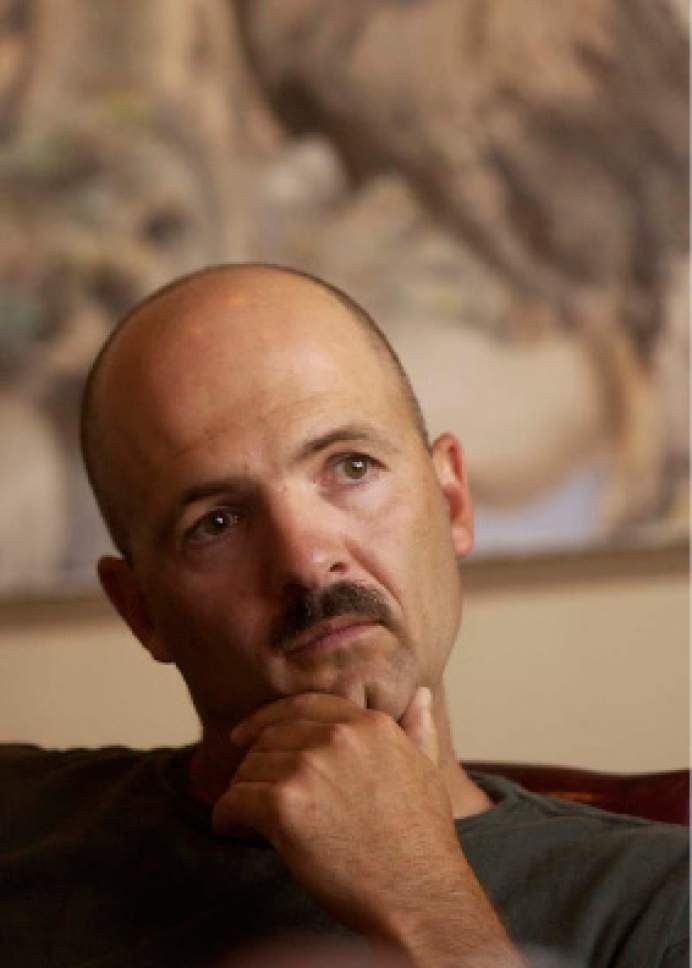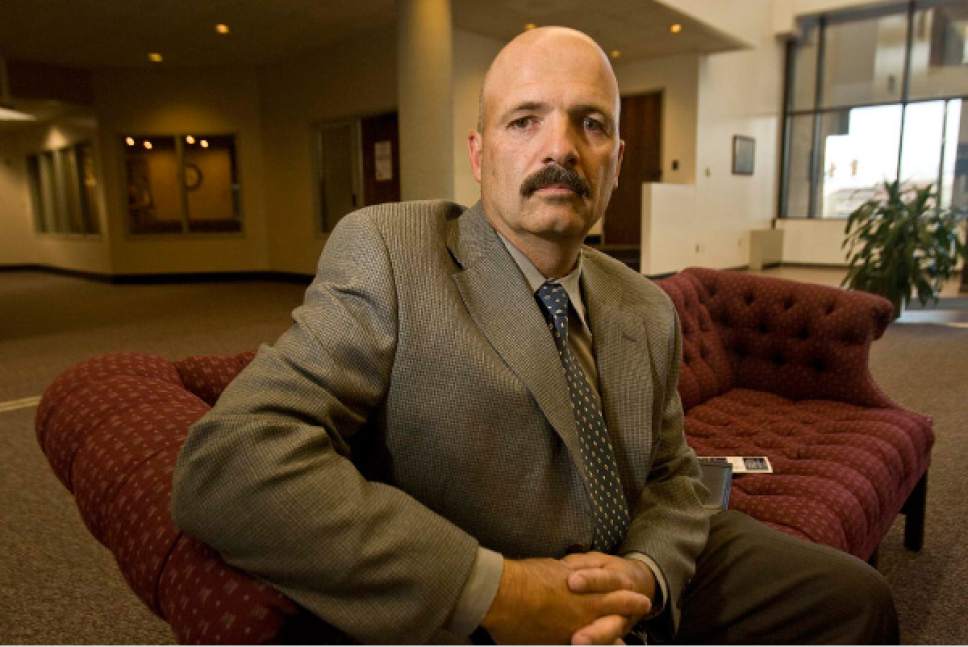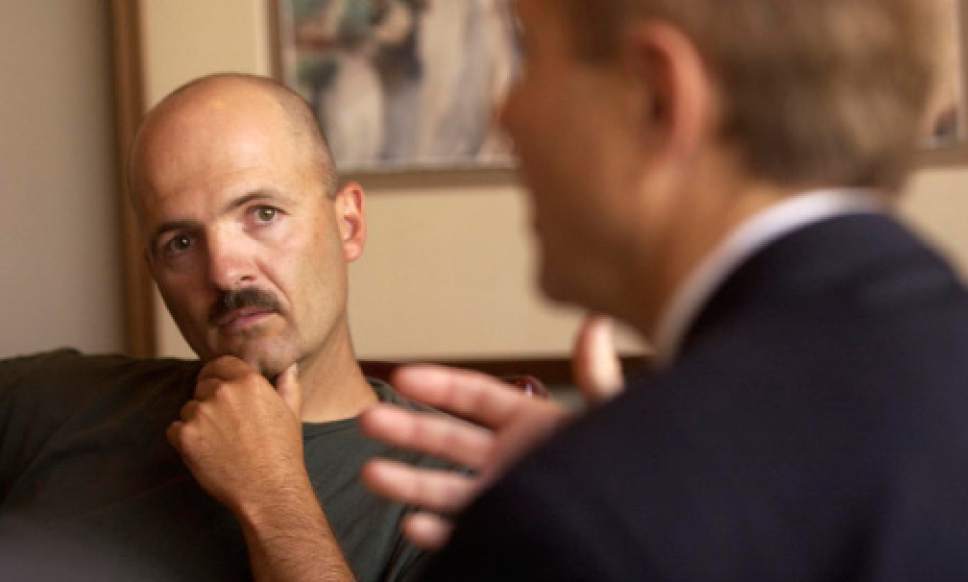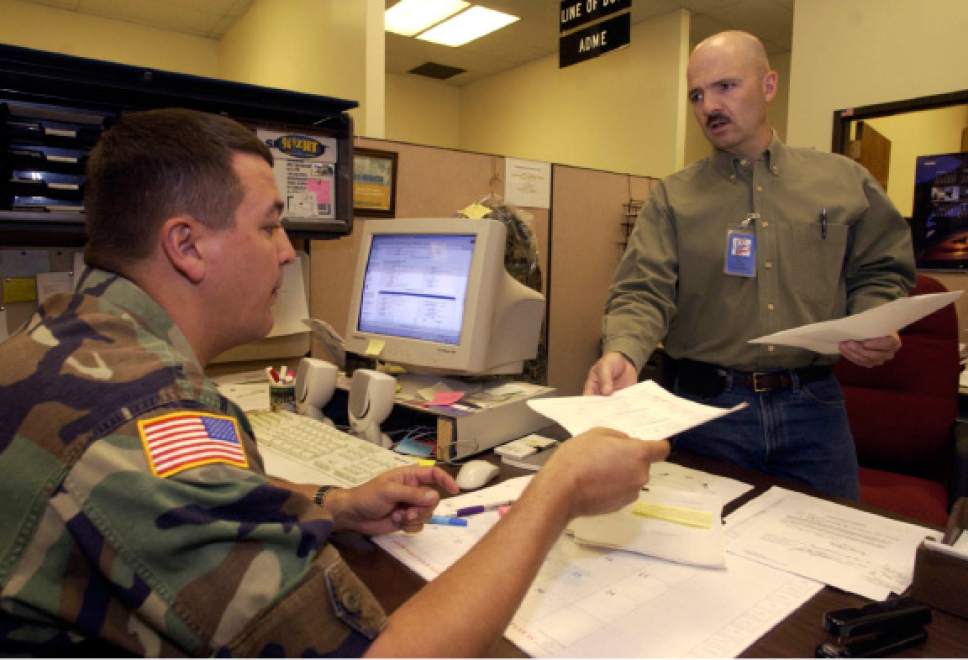This is an archived article that was published on sltrib.com in 2017, and information in the article may be outdated. It is provided only for personal research purposes and may not be reprinted.
A retired Utah Special Forces soldier learned Friday that the man accused of partially blinding him and killing his comrade in a 2002 Afghanistan firefight was paid millions of dollars this week by the Canadian government.
Former Guantanamo Bay prisoner and Canadian citizen Omar Khadr was issued a $10.5 million check ($8 million in U.S. dollars) in a settlement reached after a court ruled that his rights were abused at the prison. On Friday, the Canadian government confirmed the settlement and formally apologized to Khadr, who was sent to Guantanamo when he was a teenager.
Sgt. Layne Morris, who now works for West Valley City, called news of the settlement deal "galling and disturbing" in a Friday telephone interview. He added that it was especially frustrating to see the Canadian government apparently work to keep the deal quiet earlier this week.
The settlement first leaked to several Canadian news outlets. The news sparked anger among many Canadians — as well as Morris — who consider the now-30-year-old Khadr a terrorist.
"This is an outpouring of financial support for a man who has made bad decisions his whole life," Morris said of Khadr. "He has not had to pay for those decisions in any sort of substantial way, and now he's being rewarded for them."
Khadr was 15 when he was captured by U.S. troops after a firefight at an apparent al-Qaida compound in Afghanistan. He was suspected of throwing a grenade that blinded Morris in one eye and killed his comrade, U.S. Army Sgt. First Class Christopher Speer.
Khadr was sent to Guantanamo and charged with war crimes. He pleaded guilty in 2010 to charges, including murder, and was sentenced to eight years in prison plus time he'd spent in custody. He returned to Canada two years later to serve the remainder of his sentence and was released in 2015 pending an appeal of his guilty plea, which he said was made under duress.
Khadr spent 10 years at Guantanamo. While some said he was a terrorist, others argued he was a child soldier who had faced torture.
The recent ruling by the Supreme Court of Canada stated Canadian intelligence obtained evidence from Khadr in 2003 under "oppressive circumstances," such as sleep deprivation, then shared that evidence with U.S. officials. Khadr's lawyers filed a wrongful-imprisonment lawsuit against the Canadian government, saying it had violated international law and not protected its own citizen.
Lawyers for Morris and the Speer family have filed their own lawsuits through the years. In 2005, a U.S. judge awarded a $102.6 million judgment against the estate of Khadr's family, saying his father, Ahmed Said Khadr, was intimately involved in al-Qaida and trained his young son to attack American targets. In 2014, they filed another wrongful death and injury lawsuit against Khadr only; a U.S. judge granted them $134.2 million in damages in 2015.
"I'm like a $200 million man on paper," Morris said, adding he hasn't seen any money from the lawsuits.
Lawyers for Speer and Morris did file an application in a Canadian court last month hoping any money paid by the Canadian government to Khadr would instead go to them.
Still, Morris said he's not getting his hopes up.
"I don't live my life around Omar Khadr," he said. "He doesn't keep me awake at night."
Morris said it was Khadr's now-deceased father whom he and several other soldiers were searching for the day of the deadly firefight. Ahmed Said Khadr had ties to several extremist leaders, including Osama bin Laden.
Morris and four other U.S. soldiers arrived at the small compound, he recalled, noticing a group of armed men inside who did not appear to be Afghans. Nothing happened for a while, Morris said, but as an Afghan interpreter approached to talk with the men and ask about the senior Khadr, he was shot "point-blank." That's when the armed men began shooting and tossing grenades over the compound wall at the American soldiers.
When the soldiers rushed the compound, wounding the young Khadr and killing the other insurgents, the 15-year-old purportedly threw one final grenade that killed Speer and partially blinded Morris.
"Omar was an enthusiastic, willing participant in that," Morris said. "And, in fact, he was the most successful. He's the only one who killed anyone with a grenade."
Khadr told CBC News on Friday that he felt the settlement and government apology help restore his reputation, though he is sorry it could cause pain for the Speer family. He said he is a "different person" now.
"When you're young, you don't think about the morality of what you're doing, or why you're doing it," he said. "When you grow up in an environment where these things are normal, you don't think about the morality, the rights and the wrongs, you just do what everybody else is doing."
Morris doesn't buy it. Despite being just 15, Khadr was hardened and fully dedicated to his goal of killing the U.S. soldiers, Morris said.
"All he had to do was call out and say, 'Hey,' " Morris said. "Instead, he waited for our guys to get close enough, then threw the grenade that killed Chris Speer."
Morris said Khadr also was gravely injured in the firefight, likely just "30 seconds from bleeding out."
He insists Khadr asked to die, but a U.S. medic sprang into action and saved the teenager's life. Now, in a strange twist, the Utahn and his fellow soldiers watch as Khadr gets a big payday.
Said Morris: "I'm thinking I'm about to get another round of phone calls from my buddies, saying, 'Jeez, whose idea was it to let this kid live?' "
Twitter: @lramseth
— The Associated Press contributed to this report


